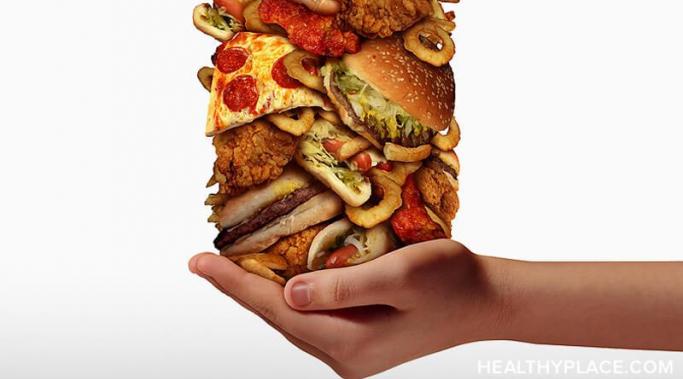Halloween can make it extremely difficult to avoid a binge while dealing with binge eating disorder. This celebration is centered on a food which can, for many, be triggering: candy. However, it's absolutely possible to avoid a binge during this time. Let's enjoy this spooky, spirit-filled time without all the food worries this year.
Binge Eating Recovery
For 20 years, every bingeing relapse caused me so much guilt, I returned to binge eating. Until recently, I considered every bingeing relapse a disaster and myself as a failure that would never get better. Binge eating is one of the most difficult aspects of my life to discuss because I feel guilty that there are hungry people and I overeat. I also feel ashamed that I allow myself to lose control like this, so when I have a bingeing relapse, all of these emotions intensify. It was not until I stopped thinking in terms of success and failure that I began making progress, and I’d like to share ways I have retrained my brain to navigate my recovery and learn from a bingeing relapse.
My eating disorder treatment experience was a crucial part on my road to abstaining from eating disorder behaviors. Over the years, I have been through many types of treatment programs and have had many different experiences with them all. I hope through reading this you are able to gain insight into what the treatment experience for eating disorders is like.
I often missed the essential steps to binge eating disorder recovery because, when I binged, I felt overwhelmed with shame, guilt, and sadness. It did not occur to me there may be more below the surface. I attributed overeating to lack of self-control and used it as a way to berate myself for days on end. But when I started journaling, I began to see in black and white how I spoke to myself, my mood instability, and how much pain I was in without even acknowledging it. Because of journaling, I uncovered three essential steps to binge eating disorder recovery.
I’m Daina Frame, and I’m excited to join HealthyPlace and Binge Eating Recovery to write about my recovery with eating disorders. I am 34 years old, and I have struggled with eating disorders for almost 20 years. I only began talking about my disorders a year ago. Until then, I hid everything from everyone I know. I had always feared being honest about binge eating, bulimia, and anorexia. I was ashamed and scared to talk about the truth. While I have been able to stop purging and restricting, I still am working through binge eating disorder. In addition to eating disorders, I am in the process of recovery for bipolar disorder, depression, anxiety, and posttraumatic stress disorder (PTSD).
Why would we use gratefulness as a binge eating recovery tool? Why is gratitude important to eating disorder recovery? Well, sometimes as humans we become so bogged down in all the negative of this world. We focus on what's wrong, what needs to be fixed, and how much better life could be. What would happen if we refocused our mind on all the things that were going right? All those things we find beautiful in the everyday. There is always something to find joy in even when we seem to be surrounded by the darkest of moments. Gratefulness is important to binge eating disorder recovery because it helps us find joy, and in joy we're strong.
Grieving in binge eating disorder recovery matters. It may seem weird to think that you need to grieve the loss of your eating disorder as if it were a person. Let's really think about it though. I know for me, my eating disorder served a big purpose in my life and was, at one point, my only friend. As necessary as ridding this disease from my life was it was still a loss and required me to grieve. This is a challenging part of the process but is absolutely necessary if we are to move on and find wellness. Grief in binge eating disorder recovery is important.
While active in my binge eating disorder, I thought "Recovery isn't meant for me" because I could not imagine what a life free of my binge eating disorder could look like. Sometimes I think I didn't even want to. I thought my behaviors were keeping me sane, so why would I want to envision living in any other way? I was certain binge eating disorder recovery wasn't for me.
Traveling during eating disorder recovery can be tricky. When we get outside of our normal routine, slips have more potential to occur. With proper planning, however, taking trips and sticking to your meal plan is absolutely possible. Here I share my experience and travel tips for your eating disorder recovery.
I've learned that finding your passion is critical in eating disorder recovery. Passion is what keeps us pushing through life, through the worst and the best of days it remains a driving force. While a prisoner of my eating disorder, I lost passion for any and all things this life had to offer. I realized during my eating disorder recovery journey that passion is something we need to reconnect with to find the strength to keep persevering in wellness.









